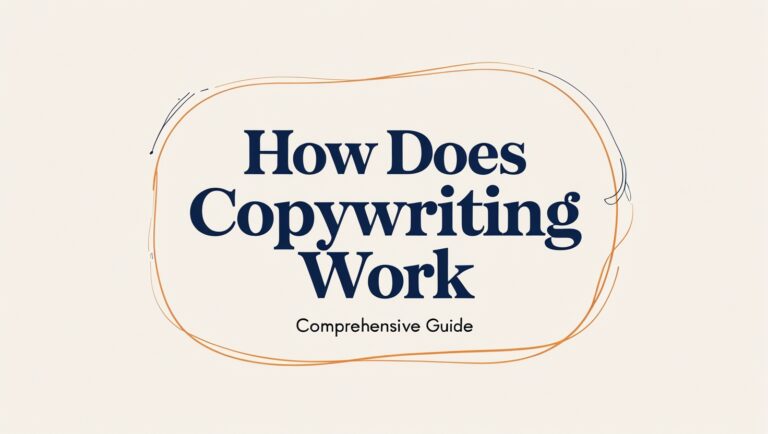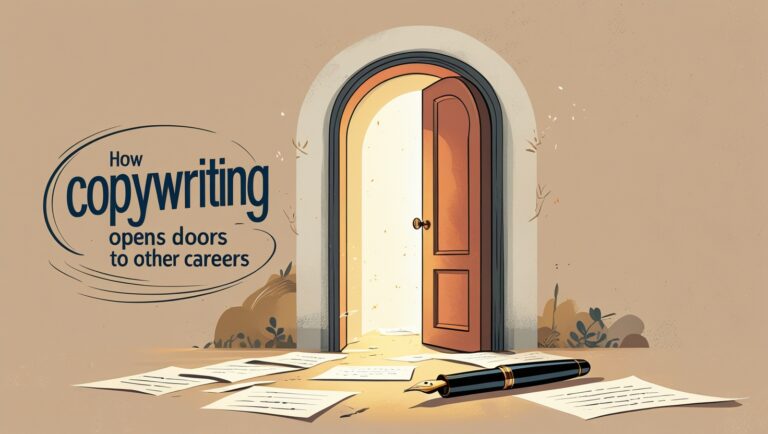How Do I Know if Copywriting is for Me?
Are you considering a career in copywriting but unsure if it is the right fit? Many people are drawn to the promise of creative work, flexible hours, and earning potential. However, not everyone knows what copywriting truly involves. This guide will help you explore the essential skills, mindset, and common challenges associated with copywriting. By the end, you will better understand whether copywriting suits you.
What is Copywriting and Why Does It Matter?
Copywriting is the art and science of writing persuasive content that motivates readers to take action. This could include buying a product, signing up for a newsletter, or clicking a link. Businesses rely on skilled copywriters to drive sales and build strong customer relationships.
“Good copy is like a silent salesperson working for you 24/7.”
Understanding how copywriting works is essential before deciding if it is your path. It is not just about being good with words; it is about knowing how to influence and persuade.
Signs Copywriting Might Be Right for You
Wondering if you have what it takes? Here are key indicators:
- You enjoy writing: You find satisfaction in crafting sentences and expressing ideas clearly.
- You are curious: Researching new topics excites you.
- You can handle feedback: Constructive criticism helps you improve, not discourage you.
- You think about why people buy things: Psychology and consumer behavior interest you.
- You work well with deadlines: Pressure motivates you to perform better.
If these qualities resonate with you, copywriting might be a promising career choice.
Common Questions About Copywriting
What is the 80/20 Rule in Copywriting?
The 80/20 rule states that 80% of results come from 20% of efforts. In copywriting, this means focusing on elements that drive the most conversions, such as headlines and calls to action.
What are the 3 C’s of Copywriting?
The 3 C’s stand for:
- Clear: Make your message easy to understand.
- Concise: Get to the point quickly.
- Compelling: Engage the reader and inspire action.
Am I Good Enough to Be a Copywriter?
Self-doubt is common. Skills improve with practice. Many successful copywriters started with no formal background. You are good enough to begin if you are willing to learn and improve.
Is Copywriting Stressful?
Like any job, copywriting has its pressures. Tight deadlines, client expectations, and creative blocks can be challenging. However, effective time management and experience make it manageable.
How Do You Price Yourself as a Copywriter?
Pricing depends on your experience, project scope, and market rates. Beginners might charge per word or hour, while seasoned copywriters often offer project-based pricing. Researching competitor rates helps set fair prices.
For more on monetizing your skills, read How to Make Money with Copywriting Quickly.
Skills Needed for Successful Copywriting

While writing talent helps, other crucial skills include:
- Research: Ability to gather information efficiently.
- Empathy: Understanding the audience’s needs and emotions.
- SEO knowledge: Knowing how to optimize content for search engines.
- Adaptability: Tailoring tone and style for various clients.
Developing these skills boosts your effectiveness and marketability.
The Reality of Breaking Into Copywriting
Is Copywriting Hard to Break Into?
Breaking into copywriting is challenging but not impossible. Building a portfolio, networking, and continuous learning are essential steps. Many start with smaller gigs on freelancing platforms.
Why Is Copywriting Sometimes Called Illegal?
Some confuse copywriting with copyright infringement. Copywriting is legal and ethical when original work is produced. Always avoid plagiarism to maintain credibility.
What is the First Rule of Copywriting?
Know your audience. Every piece of copy should speak directly to the reader’s needs, desires, and pain points.
Proven Copywriting Formulas
What are the 4 C’s of Copywriting?
- Clear
- Concise
- Compelling
- Credible
These principles ensure your message resonates.
What are the 5 C’s of Copywriting?
- Clear
- Concise
- Compelling
- Credible
- Conversational
Adding a conversational tone keeps the reader engaged.
What are the 4 P’s Copywriting Formula?
- Promise: State a benefit.
- Picture: Help readers envision the benefit.
- Proof: Offer evidence or testimonials.
- Push: Include a call to action.
These formulas guide you in crafting persuasive messages.
Overcoming Imposter Syndrome in Copywriting
Many beginners wonder, “Am I good enough?” Doubt is natural. Focus on improving with each project. Even top copywriters started somewhere. Seek feedback, practice, and remember progress comes with time.
Conclusion: Is Copywriting for You?
Choosing a career in copywriting depends on your skills, interests, and willingness to improve. If you love writing, enjoy problem-solving, and want a flexible career, copywriting could be a perfect fit. The journey may have challenges, but with dedication, success is achievable.
Ready to explore further? Check out How to Make Money with Copywriting Quickly for actionable tips to start earning.
FAQ
What is the Golden Rule of Copywriting?
Write for your reader, not yourself. Your audience’s needs should guide your writing.
How Do I Know if I Will Enjoy Copywriting?
Try writing sample ads or articles. If you enjoy the process of crafting persuasive messages, that is a strong sign.
Can I Learn Copywriting on My Own?
Yes. Many successful copywriters are self-taught through online courses, books, and practice.
Start your copywriting journey today. Learn, practice, and watch your skills grow.






